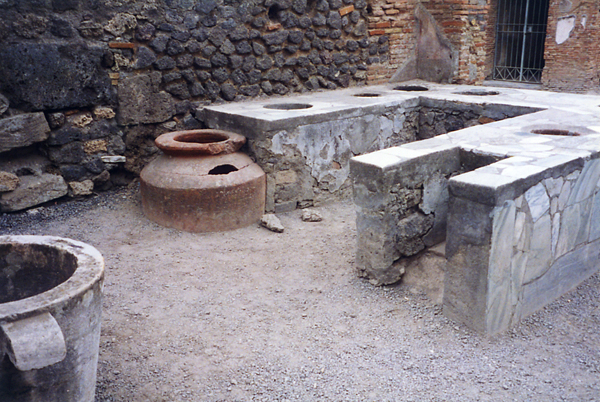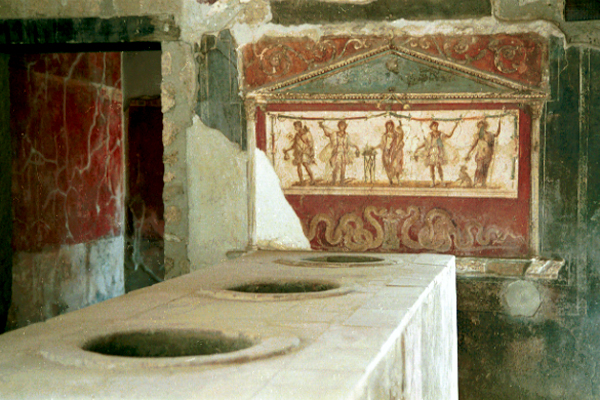
The thermopolium served hot food and mulled spiced wine (calida) from earthenware jars set in the counter. Such an establishment could be a neighborhood stand specializing in two or three items, such as wine, lentils, meats, or cheese, or a more elegant setting with frescoed walls decorating the dining area. Patronized by those who did not have the facilities to cook at home or chose to take their afternoon meal there, the thermopolia also were the haunts of more disreputable sorts. Plautus, for example, speaks of effeminate Greeks and thieving slaves frequenting them (Curculio, II.iii.288ff; Trinummus, IV.3.1013), and Dio records that Claudius once commanded that such places be closed altogether. "Moreover, seeing that there was no use in forbidding the populace to do certain things unless their daily life should be reformed, he abolished the taverns where they were wont to gather and drink, and commanded that no boiled meat or hot water should be sold; and he punished some who disobeyed in this matter" (LX.6.7). Caligula, having declared a period of mourning for his sister, even had a man put to death for selling hot water then (LIX.11.6).
A large terracotta dolium is half buried in the ground.

|
This is the thermopolium of Vetutius Placidus, where a lararia or household shrine is located at the end of the counter. Painted on the wall are the household gods, the Lares and Penates, who, together with the genius or guiding spirit of the house, watched over home and family. Here, the genius of the proprietor is flanked by the guardian deities of the establishment, Mercury (god of commerce) and Bacchus (god of wine). The two serpents visible below are tutelary spirits. |